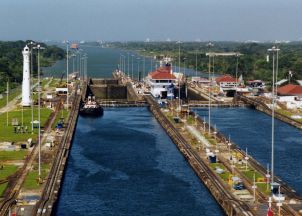
(Portstrategy.com) A row has broken out between The International Chamber of Shipping (ICS) and the Panama Canal Authority (ACP) over the proposed plans to increase the toll charges for the Panama Canal.
ICS has attacked the plans – which it says are “rushed, excessive and likely to cause further problems”, given the current climate.
ACP released proposals to hike Canal toll charges by up to 15% last month and opened a consultation period of 30 days which culminated in a public hearing on 23 May. It is now considering the comments and written submissions received.
Following the consultation, ICS sent a strongly worded letter to ACP outlining concerns from shipowners requesting that ACP concentrate instead on the development of a mutually beneficial toll structure to be introduced in late 2014.
ICS argues that the industry was assured there would only be one small adjustment to tolls before completion of the expansion project in 2014. But, under the new proposals, toll increases could come into effect as early as 1 July 2012.
Meanwhile, ACP has responded to Port Strategy in defence of the toll hike proposal.
Rodolfo Sabonge, vice president, market research and analysis, Panama Canal Authority, said to PS: “The ACP is fully aware that transportation, and logistics in general, has become a major differentiator in terms of competitiveness for different commodities and products, therefore, when it implements a tolls change, the Canal does it after a thorough analysis of all the factors that are affecting trade, including the fees charged by the Canal.”
He added: “On several occasions, the arguments presented by the participants in the process have been taken into consideration by the Board when making its final decision.”
During the last toll change, the ACP Board of Directors changed the date of implementation of reefers’ tolls from January to April – affected parties had pointed out that the change in tolls would be made in the middle of the fruit season.
This process is quite unique as not many service providers in the transportation industry formally allow their customers to express their views regarding price changes.